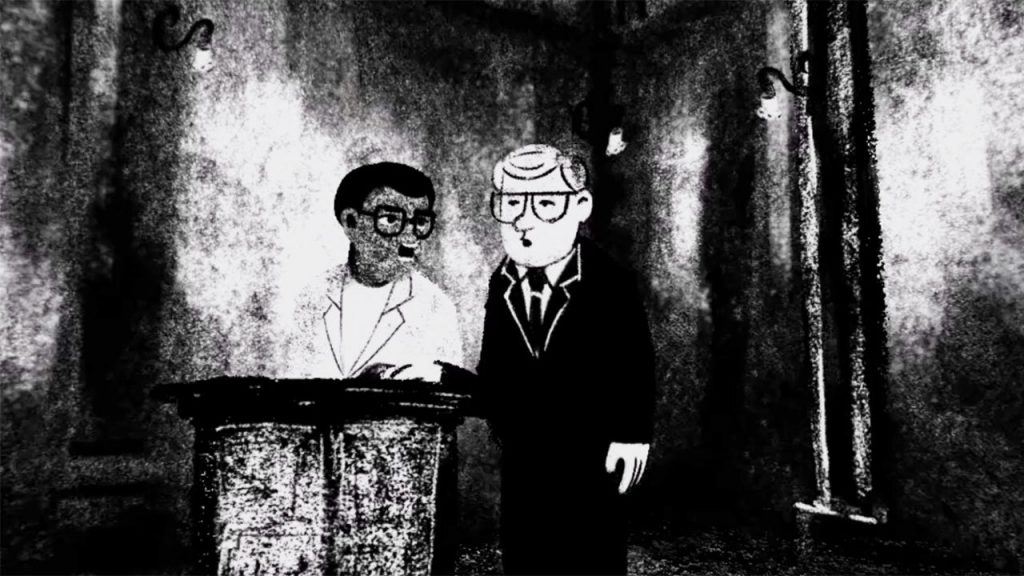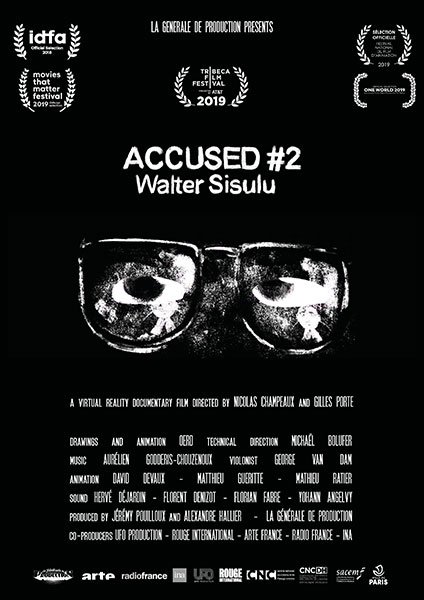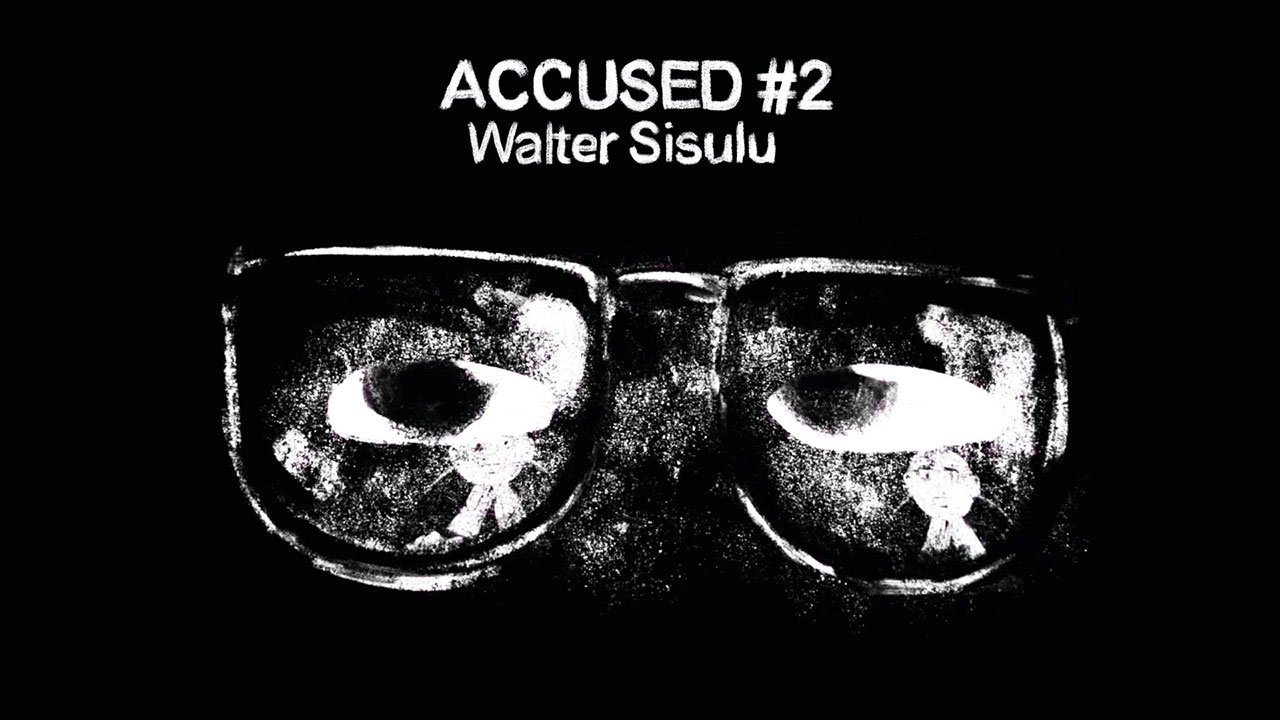Founder at la Générale de Production, Paris-based production company, Jérémy Pouilloux produced in 2019 the immersive documentary ACCUSED #2: WALTER SISULU, one of the most selected projects in festival, released alongside a feature film on the same subject, THE STATE AGAINST MANDELA AND OTHERS, both directed by Nicolas Champeaux and Gilles Porte. Never tired, Jérémy Pouilloux is also the producer of REALITY CHECK, an exhibition around the life of Mandela’s closest advisor and mentor Walter Sisulu. Jeremy is also co-creator of the New Images interactive festival in Paris (next edition 10-14 of June – link)
Jeremy Pouilloux – Originally Nicolas Champeaux and Gilles Porte were working on a feature film on the Mandela Trial, and seeing their work in progress on audio archives and the original animation, I said to myself that something had to be done in virtual reality around that. And finally we decided to work on this idea.
J. P. – One of the main strengths of the film was the famous audio tapes they found. Henri Chamoux (link), the engineer who digitized the original materials (the dictabelts), was really touched by these testimonies – notably the interview with Ahmed Kathrada. And it turns out that Nicolas Champeaux is his neighbor and had previously interviewed Kathrada in South Africa! From their meeting, their listening to this heritage was born this project. Listening to the tapes, the emotion is real. With the good artistic approach, perfectly chosen to enhance the sound, the film existed.
From historical interest to festival success
J. P. – We didn’t produce the film thinking it would be such a festival success, even though we knew its potential. By the very context of the testimonies, the historical interest and the documentary festival circuit, we had a “film for festival”. But our best asset was our main character: Walter Sisulu. We focused on the 5 days of the trial during which Sisulu is being prosecuted. But more than that, Sisulu is the one who spotted Mandela, and was one of his closest political advisers – almost indispensable. And yet no one knows him – outside of South Africa. While he was a central figure with Mandela.

J. P. – The feedbacks around the film are fairly consistent with regards to the questions raised. Injustice, the voting rights of black minorities … These themes are universal. But I was particularly touched by the feedbacks from the South African audience. I thought they knew this story, when not so well, especially among younger generations. They were allowed to immerse themselves in this sound material, to discover Sisulu and the others characters. The context in the country also calls out, with a youth that partly rejects the legacy of Mandela, as a form of reaction to their recent history. By immersing them in this story, thanks in particular to the technology, they learned about their past. Virtual reality allows you to step back, to question yourself.
J. P. – The feature film and the experience in virtual reality were not presented or only rarely presented together. The distribution networks are really different between the cinema and interactive industries. Museum presentations and VR showcases have never been simultaneous with a screening of the film, with a few exceptions. It is however a real desire to present both. But the use is different, it’s complicated for a feature film to be presented in museums. It’s easier with mediation in schools and a dedicated educational booklet, where the feature film and VR project are shown to the students.
About the exhibition REALITY CHECK
J. P. – The idea of creating an exhibition came with the directors, wishing to offer the best possible setting to discover the VR film. We needed a dedicated place, with a receptive audience. There is a real wealth of documents that we were able to find, between the trial, incarceration and the years of release. As the producer of the exhibition (link), we designed everything from A to Z – We had the experience of having organized several exhibitions in Paris including I LOVE TRANSMEDIA until 2017.
J. P. – This type of place does not exist for documentaries – the L.B.E. is rather concentrated around video games and entertainment. Like other producers in the immersive industry, we turned to existing places, offering a specific exhibition around our experience. It started at the Apartheid Museum in Johannesburg until the end of March, and should be traveling in South Africa between March and September, from September to January 2021 at the Mandela foundation, and I hope in the rest of the world (in France, in The Hague…). We can consider working directly over several years with different places for this project – almost as CARNE Y ARENA did.
J. P. – The current problem of VR festivals is the cost of presenting projects and their short presentation (few days at least). Nothing is profitable and it is becoming problematic. We can showcase a project once, or twice, but it’s very financially complicated to assume as producer the cost of sending and presenting a VR film. Our work with museums is well-organized on solid ground with a system of licence fee where we can make money. With the same idea, our immersive film TANTALE (link) released in 2017 has now a second life with a dozen screenings in Europe and Asia this year.

Being a producer of all contents
J. P. – At la Générale, we produce all types of programs, whether they are traditional films for television or cinema, or more innovative formats. On ACCUSED #2: WALTER SISULU, it’s the idea of being as close as possible to the sound that has imposed itself. The immersion had to be maximum. In addition, without mystery, the film is inscribed by its theme in the DNA of our production company which focuses on historical and political subjects.
J. P. – Producer, it’s a multidisciplinary profession. Our job is already to reproduce elements of the real world on screen, and to film. You must already have several skills to get there. Creating an exhibition – or a VR film – is an extension of this capacity for adaptation. To create an exhibition is to create content. Interactive book, movie, video game, exhibition, conference … The idea is to create an experience of discovery as deep and comfortable as possible. We come back to what cinema and television are. You have to personalize the context for the audience, guide the spectator in the immersion. My job as a producer is above all about storytelling.



Leave a Reply
You must be logged in to post a comment.